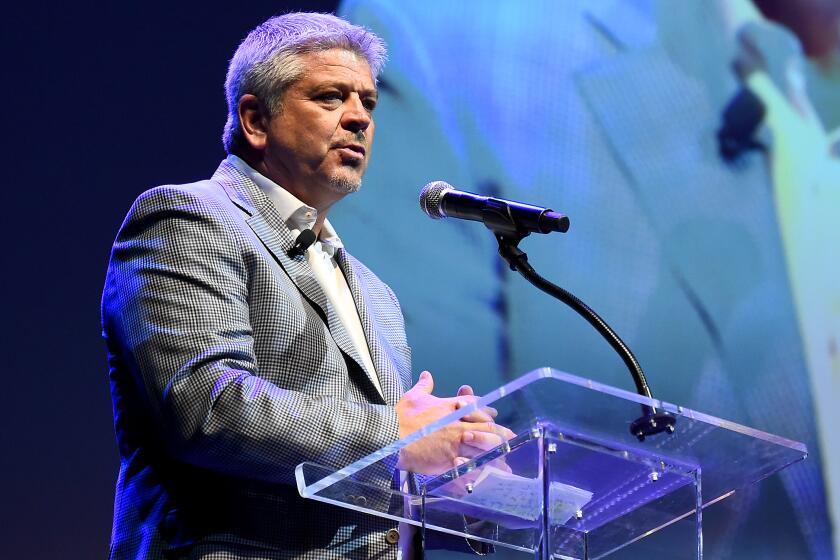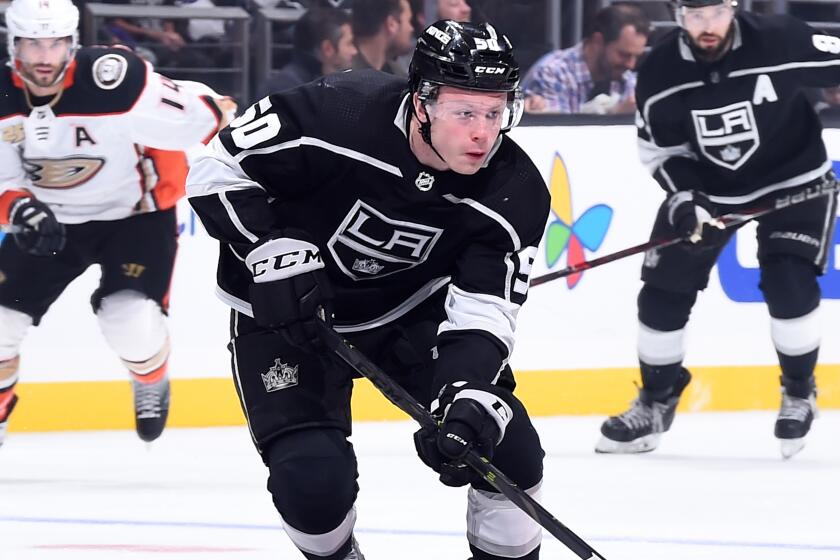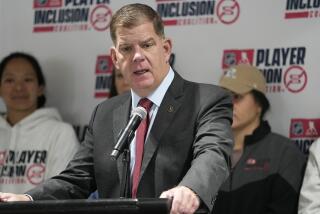Column: Lost leverage by NHL players’ union means it will have to trust Gary Bettman
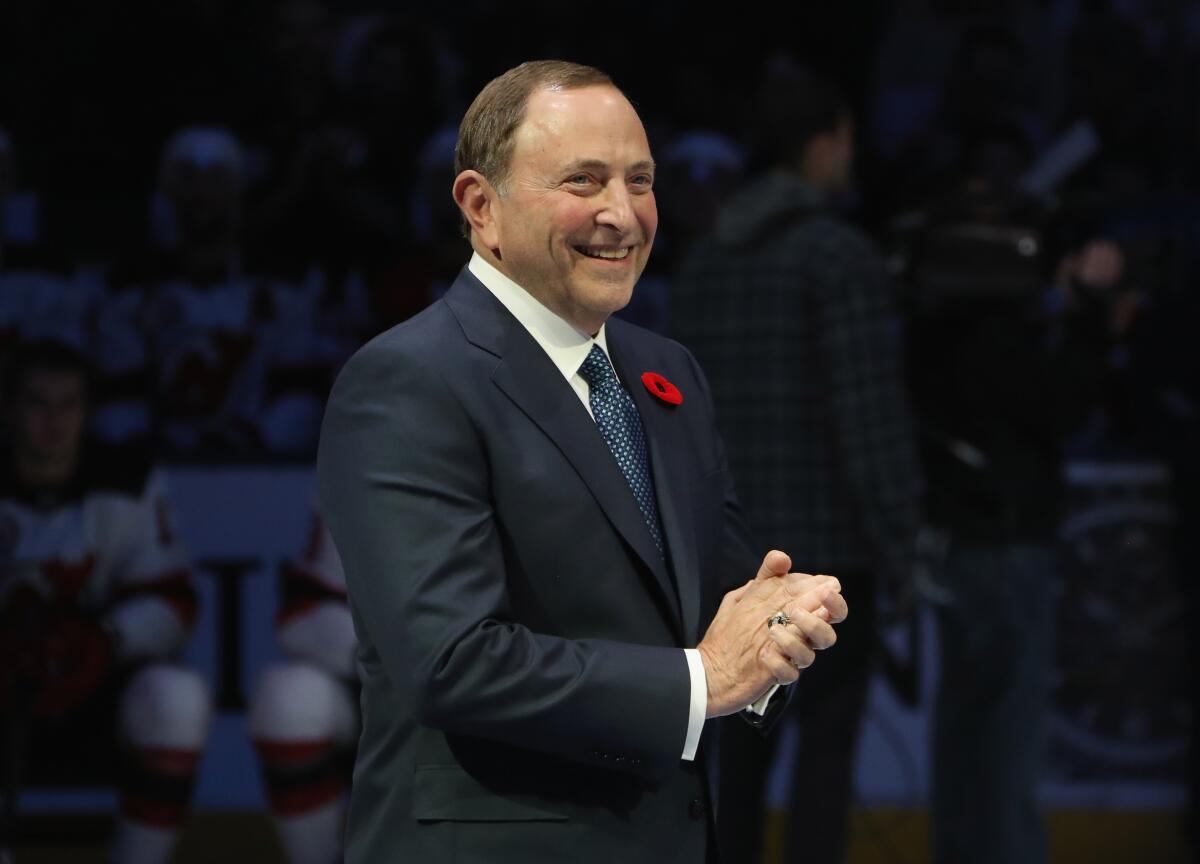
In 26-plus years as the NHL’s commissioner Gary Bettman has made lockouts nearly as inevitable as Alexander Ovechkin scoring a power-play goal from the left circle but far less fun to watch.
Of the four major professional leagues, the NHL can least afford to disappear from fans’ radar, yet Bettman shut the doors for nearly half a season in 1994-95 and 2012-13 and cancelled the entire 2004-05 season in order to impose a hard salary cap and a 50-50 split of hockey-related revenues between players and the league. The disputes often got rancorous but Bettman won every time and fans came back every time despite vowing they’d never again watch a Zamboni circle an NHL rink.
But the NHL’s current prosperity means there are no hills for owners to fight for and risk losing all or part of a season. League revenues have soared from $2.27 billion in 2005-06 to $4.68 billion in 2017-18, supporting a rise in the salary cap from $39 million per team in 2005-06 to $81.5 million this season. With that in mind, it made sense when Bettman announced last month the NHL wouldn’t exercise its option to reopen the current collective bargaining agreement and end it next September.
But after years of players bitterly complaining about an escrow system that ensures an even split of revenues but cuts deep into their paychecks, it was a mild though pleasant surprise when the NHL Players’ Assn. announced on Monday it wouldn’t invoke its opt-out clause. As a result, labor peace is guaranteed through Sept. 15, 2022, and hallelujah to that.
First practices led by Los Angeles Kings coach Todd McLellan have followed the rhythm of a jazz band — high-paced with a tendency to stop on a dime.
“While players have concerns with the current CBA, we agree with the League that working together to address those concerns is the preferred course of action instead of terminating the agreement following this season,” Don Fehr, the NHLPA’s executive director, said in a statement. “We have been having discussions with the League about an extension of the CBA and expect that those talks will continue.”
Cue the unicorns and rainbows. While they line up, here’s Bettman. “We are pleased with the NHL Players’ Association’s decision,” he said in a statement. “We look forward to continuing to work with the NHLPA for the benefit of all stakeholders, especially our fans.”
It seems the NHL is getting the biggest benefit from this. In deciding to extend the current labor deal, the NHLPA gave Bettman the keys and is letting him drive the car while trusting him when he says he knows the best route.
The union lost its leverage in efforts to modify the escrow system, which has taken 10 percent or more out of some players’ paychecks. Asked in June to identify the two major issues for players in labor talks, Chicago Blackhawks captain Jonathan Toews told reporters, “A—Escrow. And B—Escrow.” Bettman has no incentive now to appease their concerns even if discussions maintain their supposedly cordial tone.
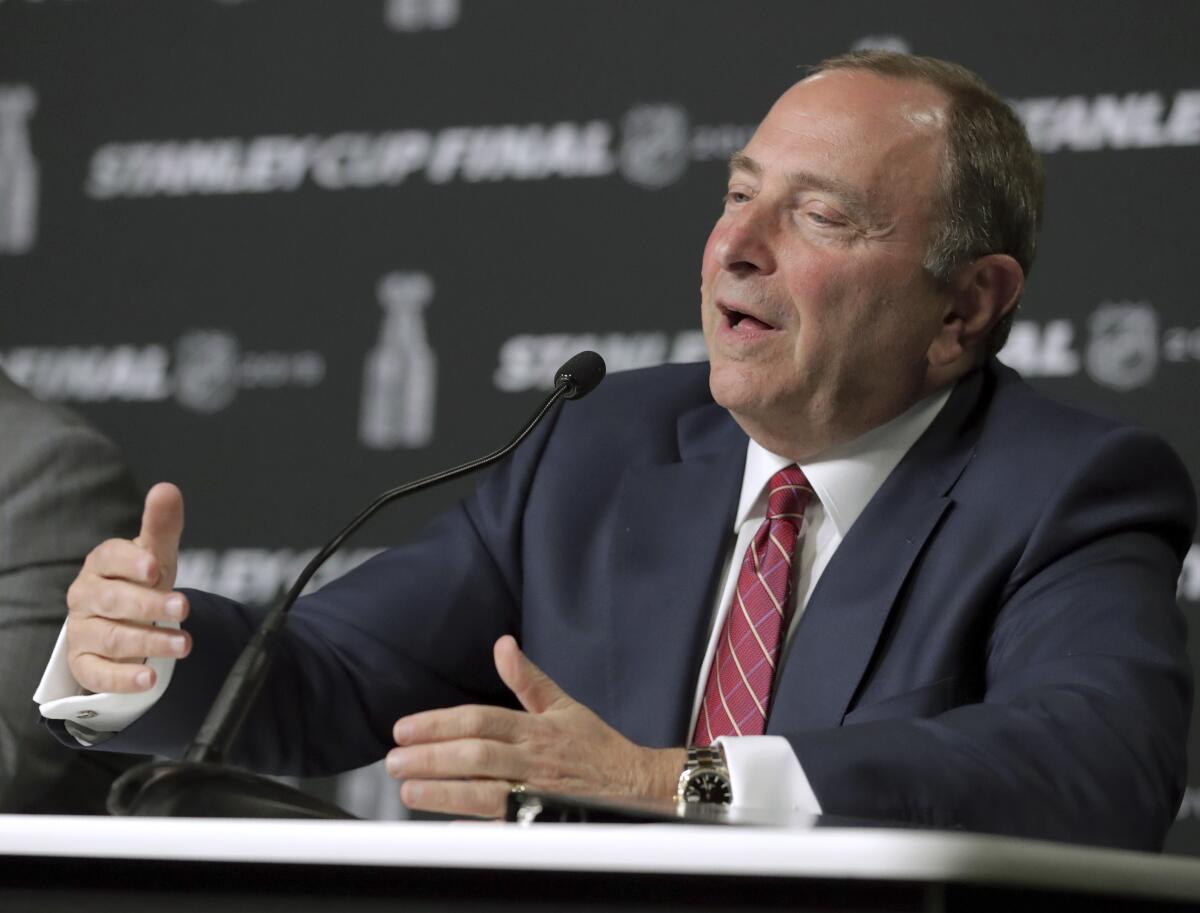
The NHLPA also lost its leverage in trying to get the league to again allow players to represent their homelands in the Winter Olympics. NHL players participated in five straight Winter Games before Bettman kept them out of the 2018 Pyeongchang Olympics, saying the league would get no financial benefits if they went and would suffer from interrupting the season for an event that wasn’t planned for North American prime-time TV viewing. It’s a complicated issue that requires cooperation among the NHL, NHLPA, the International Olympic Committee and the International Ice Hockey Federation, and good luck with that.
Players are eager to return to the Olympics at Beijing in 2022, but Bettman has indicated owners oppose the idea. Remember, he works for the owners. If enough of them say they don’t want to halt play for the Olympics, it won’t happen. Three years ago Bettman proposed allowing players to compete at Pyeongchang in exchange for players’ agreement to extend the collective bargaining agreement through 2025 but the NHLPA rejected that because it would have covered “the career lifespan of most players in the league today,” according to an NHLPA press release. So they didn’t play in Pyeongchang and they’ve now agreed to keep a labor deal whose escrow provision they detest and trust Bettman will accommodate their concerns. Good luck with that, too.
Jaret Anderson-Dolan surprisingly made the Kings’ roster opening-night last season but was sent down after five games. He’s determined to stick around this season.
Stability on the labor front and the possibility of extended peace come at a perfect time for Bettman. The NHL’s 10-year, $2-billion U.S. TV deal with Comcast/NBC expires after the 2020-21 season and Bettman can now tout the certainty of uninterrupted play for the short-term future, and maybe longer, when he shops the TV rights to various networks. The Seattle expansion team, which paid a $650 million entry fee that owners don’t have to share with players, is now sure of starting on time in 2021-22.
If players somehow manage to get concessions from Bettman on key issues such as escrow or broadening the definition of hockey-related revenues, good for them. But for fans, knowing there’s no threat of a lockout around the corner is the equivalent of seeing puppies and unicorns lining up at center ice beneath a row of rainbows. It doesn’t happen often, so enjoy it while you can.
More to Read
Go beyond the scoreboard
Get the latest on L.A.'s teams in the daily Sports Report newsletter.
You may occasionally receive promotional content from the Los Angeles Times.

